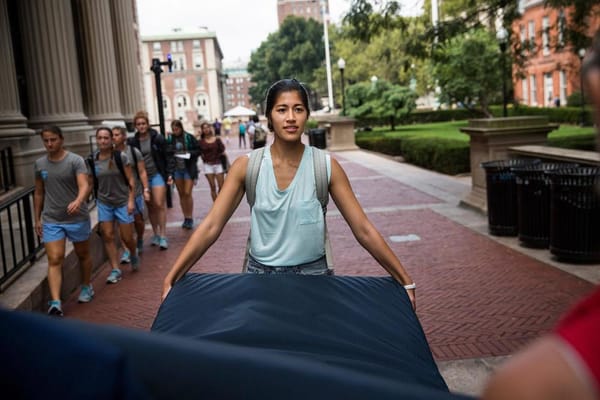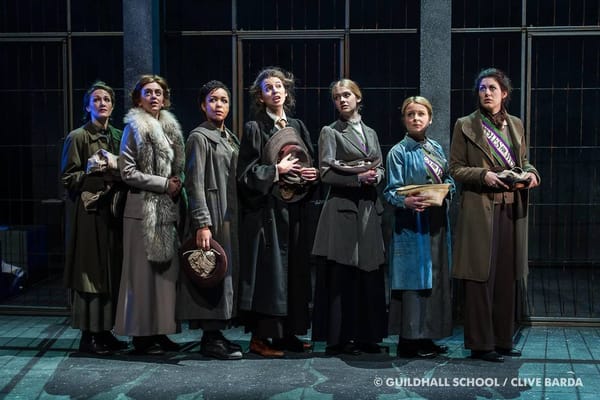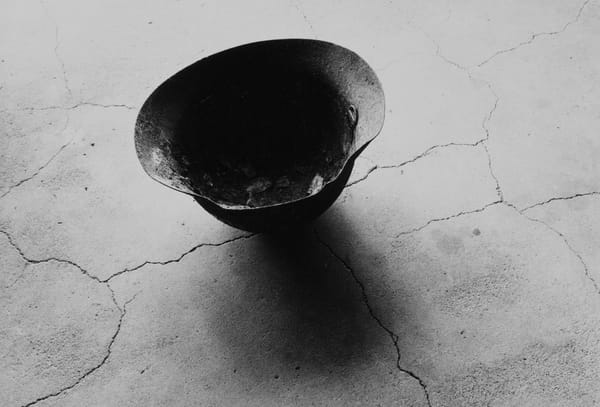A Warm Refuge from the Heart of a Bitter Winter
Fred Fyles lauds the National Theatre's newest production of 3 Winters
For those of you who are cursing the current cold weather, being made to emerge from a warm duvet cocoon in the mornings into a cold, uncaring world, spare a thought for those in Zagreb, where the temperature in December regularly drops to below zero. It is in this climate that Croatian playwright Tena Štivičić sets her play 3 Winters, which premiered at the National Theatre last week; a carefully crafted drama, 3 Winters takes on seven decades of Croatian history, from their emergence from WWII to their acceptance into the EU. By focussing on four generations of the Kos family living in Zagreb, and how they cope being buffeted by the winds of history, 3 Winters shows that not only is the personal political, but the political is personal
The action takes place in a single ivy-clad house, which shifts through generations thanks to Tim Hatley’s impeccably precise stage design. In 1945, partisan Rose lucks out in housing allocation, thanks to her associations with generals, moving into the house in which she was born in a bourgeois area of Zagreb, with her mother, baby daughter Masha, and husband, who is fresh from the front after being conscripted onto the losing side; in 1991 the family gather in the house, Masha’s sister Dunya returning from Germany to join them for Rose’s funeral; and in 2011 Masha’s youngest daughter Lucia is set to marry a venture capitalist with questionable morals, Croatia is on the cusp of becoming a full EU member, and everything in Masha’s life seems to be unravelling.
Director Howard Davies makes the bold choice not to mark which period we are in; the chopping and changing of the furniture gives us a clue as to how far we are through time, but Štivičić’s script switches between time zones every ten minutes. The result is a play that, although difficult to follow initially, works out in the long-run; this is not quick theatre, but over the course of 150 minutes, as we move backwards and forwards in time, the play unfolds like a beautiful mid-winter flower.
The themes that Štivičić takes on manage to be both vast and intimate; throughout the play there is an ideological battle between the collectivist values that Masha holds so dear, and those of Lucia, whose celebration of neoliberalism represents a Croatia that is keen to let the past be the past. Štivičić uses her cast of characters to represent different values; capitalist, communist, fascist, elitist, these all get a look in. With some other writers, this battle may seem heavy-handed, but Štivičić’s use of the house as a microcosm of Croatian society is handled with a deft touch.
At times, this conflict shifts into melodrama, exemplified in the characters of Lucia, the proto-capitalist of a new Europe, and her older sister Alisa, returning from Britain on a break from her PhD and horrified by her sister’s decision to evict all the tenants of their palatial home. The two characters are played against each other from the beginning, and – aside from some moments where the frost thaws, particularly in the last scene, fierce in its fiery intensity – in general lack nuance. Perhaps Štivičić felt that the script needed a further injection of drama, but when one looks at Croatian history is seems that conflict is one thing not in short supply.
Overall, one of the things that 3 Winters does best is explore the impact of national crises on the individual family unit, especially the ability that women have to adapt to a history driven largely by the action of men. In the Kos household there are four generation of women, who have survived frostbite, starvation, war, insanity, domestic abuse, and the death of all they hold dear, both individuals and ideas. At the centre of this matriarchal clan are sisters Masha and Dunya, played with exceptional verve by Siobhan Finneran and Lucy Black; Finneran especially imbues the stage with a firecracker tenacity bursting through a calm, collected facade. Masha is a woman in dire pains, whose life has moved from upset to upset; now, on the eve of her daughter’s wedding, she tries to hold things all together, for just one day more. As she sees everything that she held dear moving away from her, a crisis of conscience is provoked: “they think our values are quaint” she cries, lamenting what she sees as the death of society.
With four generations of mothers and daughters under one roof, Štivičić has crafted a retinue of strong female characters: Rose, a former partisan fighter who battled against the fascist dictatorship from the woods; Monika, who was dismissed from her job as a maid following being impregnated by the lord of the house; and Karolina, the flame-haired former owner of the house, whose Nazi father put her in a mental hospital, and associations with aristocracy place her under threat in a new Croatian state. It has been far too long since such a cast of strong women have graced the stage, played with equal verve by the competent cast.
With its radical approach to time, and unwillingness to follow a conventional chronology, Štivičić’s 3 Winters may initially seem like an exercise in cold intellectualism; however, this is a play, Chekhovian in ambition, that deserves your full attention before it reveals its true value. Winter in Zagreb may be brisk, but Štivičić and Davies allow us to sit at the hearth of a family home, and bask in its warm heart.
3 Winters is on at The National Theatre, until 3rd February 2015. Tickets start from £15.










